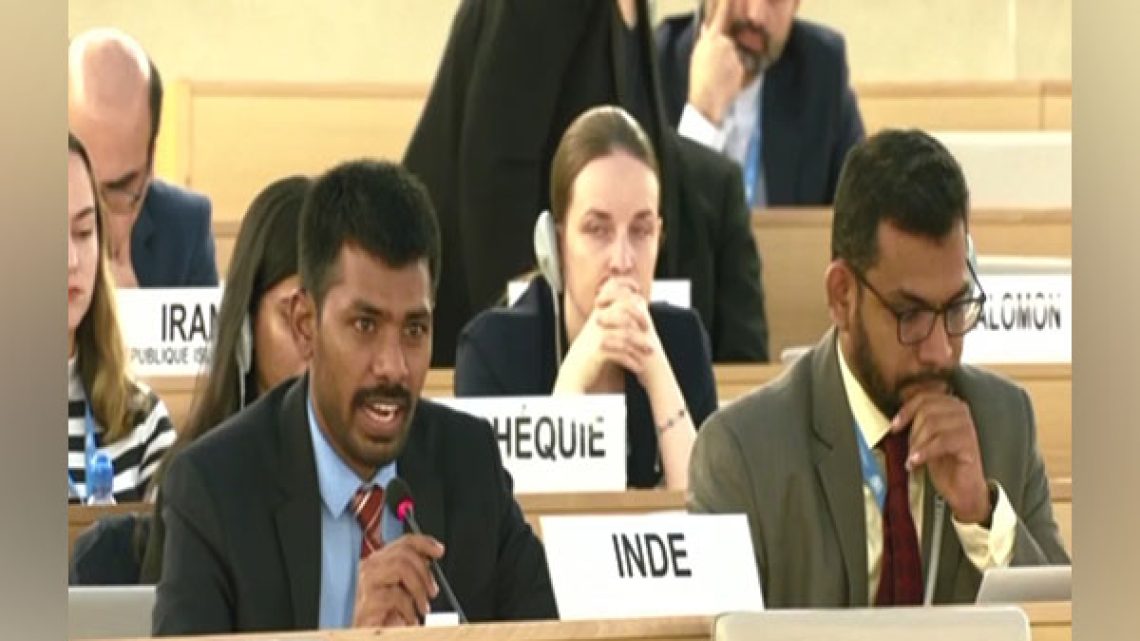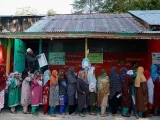
Indian Blatant HRVs in IIOJK and International Propaganda Maligning Pakistan During The 57th Session of the UNHRC
September 25, 2024Various reports from international organizations, including the UNHRC and Amnesty International, reveal widespread human rights violations in Indian illegally occupied Jammu and Kashmir (IIOJK). Similar issues are reported in Punjab, Manipur, and Nagaland in India.
These reports highlight the enduring struggles against Indian authorities in these regions, drawing global concern. IIOJK has emerged as one of the most militarized zones in the world, with one Indian soldier for every six civilians.
The area is governed under outdated and draconian laws, raising significant human rights concerns. India has been accused of promoting drug use in IIOJK and other regions to stifle freedom of speech.
This tactic aims to suppress legitimate demands for self-determination, violating the Universal Declaration of Human Rights and Article 19 of the Indian Constitution. The Armed Forces Special Powers Act (AFSPA) has faced widespread condemnation for fostering a culture of impunity.
The reports indicate that sexual violence is used as a weapon of war in these regions. This troubling trend has contributed to India’s distressing reputation as the “World Rape Capital,” a label acknowledged even by political figures like Rahul Gandhi.
The Modi government has framed Article 370 as a barrier to peace in IIOJK. However, its abrogation in 2019 failed to produce the desired outcomes for the BJP, resulting instead in increased human rights abuses.
Since 2019, there has been a marked rise in violations committed by Indian forces. The government has struggled to justify the deployment of nearly one million law enforcement agents, with a ratio of nearly 10:1.
The enactment of draconian laws has granted these forces unchecked impunity. Through compliant media, Modi has sought to create a narrative of normalcy, misleading the international community about the situation on the ground.
Contrary to India’s claims, a thorough analysis reveals a heavily militarized region. Increasing detentions under repressive laws, manipulated electoral processes, and the threat of a settler-colonial project endanger the region’s identity.
Internet blackouts and media censorship further indicate a worsening security situation. These factors expose a reality far removed from the “normalcy” touted by the Modi government.
India’s deceptive tactics, as revealed by the EU DisinfoLab, suggest involvement in cross-border terrorism aimed at Pakistan and China. The growing “India Out” movement across South Asia reflects regional desires for peace and stability.
Countries like Nepal, Bhutan, and Sri Lanka have experienced conflicts with India, underscoring the need for introspection. India must address its internal issues and cease spreading misinformation.
This approach includes a focus on resolving the Kashmir dispute peacefully, in accordance with UN resolutions. It is well-known that India employs falsehoods as state policy, especially against Pakistan.
India frequently uses international forums, particularly UN sessions, to launch propaganda campaigns aimed at tarnishing Pakistan’s image. During the ongoing 57th session of the UNHRC in Geneva, India intensified its propaganda efforts.
India accused Pakistan of harboring terrorism and destabilizing the region. These delusional narratives serve to divert attention from international criticism of its own human rights violations in IIOJK.
Pakistan has firmly rejected these baseless allegations, arguing they are diversionary tactics. India’s accusations attempt to conceal its suppression of Kashmir’s right to self-determination and its internal crises.
The international community must remain vigilant and hold India accountable for its actions in IIOJK and beyond. The ongoing struggle for human rights and self-determination in these regions deserves global attention and support.

